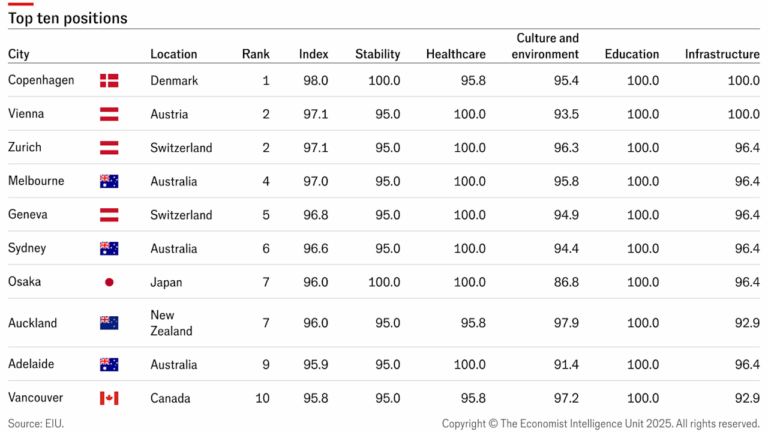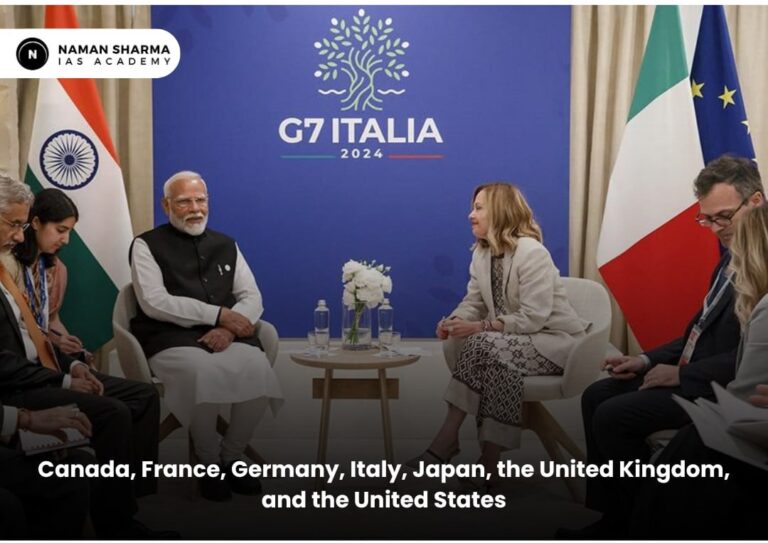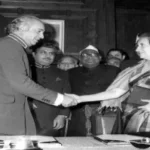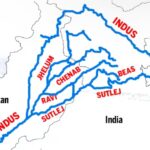Why Crimea Matters to Russia?
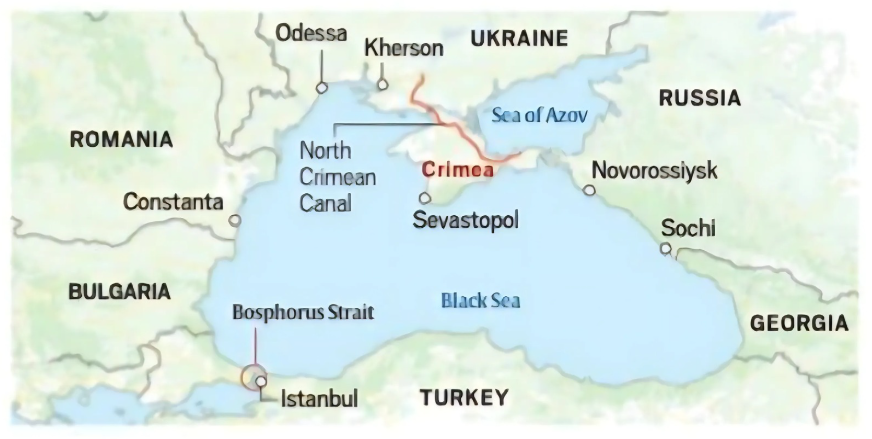
Introduction
Crimea, a strategically located peninsula on the northern coast of the Black Sea, has long been a focal point of geopolitical contention. Annexed by Russia in 2014, its significance to Moscow extends beyond mere territorial claims, encompassing historical ties, military strategy, economic interests and national identity.
Historical Significance
Crimea’s association with Russia dates back to 1783 when it was annexed from the Ottoman Empire under Catherine the Great. This move marked Russia’s emergence as a Black Sea power. Throughout the 19th and early 20th centuries, Crimea was integral to Russian imperial ambitions. Notably, the port city of Sevastopol became a symbol of Russian naval prowess and resilience, especially during the Crimean War (1853-1856)
During the Soviet era, Crimea was transferred to the Ukrainian SSR in 1954, a move that was largely symbolic at the time but gained significance after the USSR’s dissolution. The 2014 annexation by Russia was justified by Moscow as a rectification of this historical “mistake,” reinforcing the narrative of reclaiming historically Russian land.

Strategic Military Importance
Crimea’s geographical position offers Russia a strategic military advantage. The peninsula serves as a launchpad for projecting power into the Black Sea, Eastern Mediterranean, and the Middle East. The port of Sevastopol houses the Black Sea Fleet, a critical component of Russia’s naval capabilities. Control over Crimea ensures Russia’s access to warm-water ports, which are essential for year-round naval operations. Additionally, military installations in Crimea provide Russia with advanced surveillance and missile systems, enhancing its defensive and offensive capabilities in the region. The peninsula’s terrain also offers natural defense advantages, making it a formidable military stronghold.
Economic and Resource Interests
Beyond military considerations, Crimea holds economic value for Russia. The surrounding Black Sea waters are rich in natural resources, including oil and natural gas reserves. Control over these resources allows Russia to bolster its energy exports and maintain its position as a leading energy supplier to Europe.
Moreover, Crimea’s agricultural potential and tourism industry contribute to its economic significance. The region’s fertile lands support various crops, while its scenic coastline attracts tourists, adding to Russia’s domestic tourism revenue.
Demographic and Cultural Connections
A significant portion of Crimea’s population identifies as ethnically Russian. The Russian language is predominantly spoken, and Russian cultural practices are widespread. These demographic factors have been used by Moscow to justify its claim over the region, asserting the need to protect Russian-speaking populations.
The 2014 referendum, deemed illegitimate by most of the international community, reportedly showed overwhelming support for joining Russia. While the validity of these results is contested, they have been used domestically to legitimize the annexation and reinforce national unity.
Political and Ideological Factors
Crimea’s annexation serves as a symbol of Russia’s resurgence on the global stage. For President Vladimir Putin, reclaiming Crimea is portrayed as correcting historical injustices and resisting Western encroachment. This narrative resonates with many Russians, bolstering national pride and support for the government.Furthermore, Crimea’s status is central to Russia’s broader geopolitical strategy. By asserting control over the peninsula, Russia aims to deter NATO expansion and maintain a buffer zone against Western influence. This stance reflects Moscow’s desire to reassert its influence over former Soviet territories and challenge the post-Cold War international order.
International Implications
The annexation of Crimea has strained Russia’s relations with the West, leading to economic sanctions and diplomatic isolation. Despite these consequences, Russia remains steadfast in its claim viewing Crimea as non-negotiable. The ongoing conflict in Ukraine underscores Crimea’s strategic importance. The peninsula serves as a logistical hub for Russian military operations, and its control is pivotal in the broader contest between Russia and Western-aligned Ukraine. Peace negotiations have repeatedly stalled over the issue of Crimea, highlighting its centrality to the conflict’s resolution.
Conclusion
Crimea’s significance to Russia is multifaceted, encompassing historical ties, strategic military positioning, economic interests, demographic connections, and political symbolism. For Moscow relinquishing control over the peninsula is inconceivable, as it represents both a strategic asset and a cornerstone of national identity. As such, Crimea remains a critical flashpoint in Russia’s relations with Ukraine and the broader international community.
Prelims Perspective:
Q.1. Consider the following statements regarding the geopolitical importance of Crimea:
1. Crimea provides Russia with access to warm-water ports on the Black Sea.
2. The region is rich in natural resources like oil and gas.
3. Crimea connects the Caspian Sea to the Mediterranean through inland waterways.
Which of the above statements is/are correct?
A. 1 only
B. 1 and 2 only
C. 2 and 3 only
D. 1, 2 and 3
Answer: B
Explanation: Crimea is strategically important for its access to warm-water ports and proximity to oil and gas resources in the Black Sea. It does not directly connect the Caspian and Mediterranean Seas.
Q.2. Why is the port of Sevastopol strategically important for Russia?
A. It is the largest Russian port on the Pacific Ocean.
B. It allows Russia to maintain a naval presence in the Arctic Ocean.
C. It serves as the headquarters of Russia’s Black Sea Fleet.
D. It is a major hub for Russia’s oil exports to Europe.
Answer: C
Explanation: Sevastopol is the main base of Russia’s Black Sea Fleet, providing critical military access to the Mediterranean region.
Mains Practice Question:
Q. Critically examine the strategic importance of Crimea for Russia. How has its annexation in 2014 influenced regional geopolitics, international law, and Russia’s relations with the West? (250 words)
Also Read : India’s digital diplomacy in Africa

